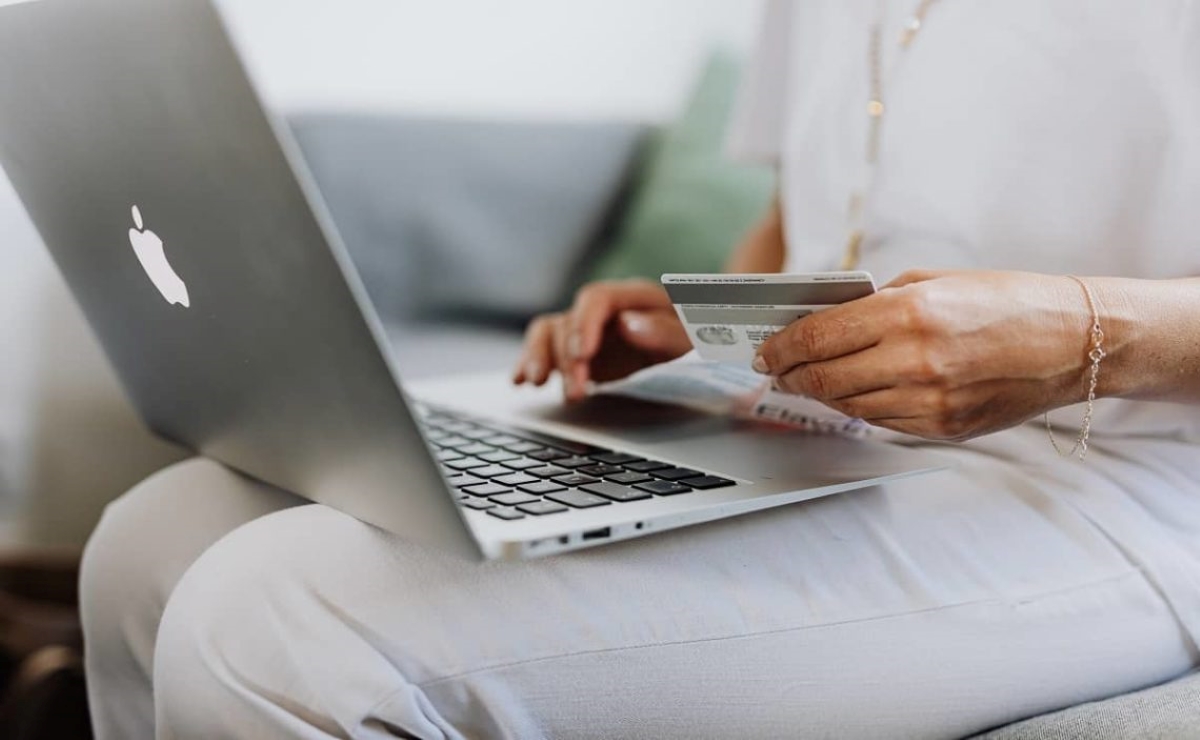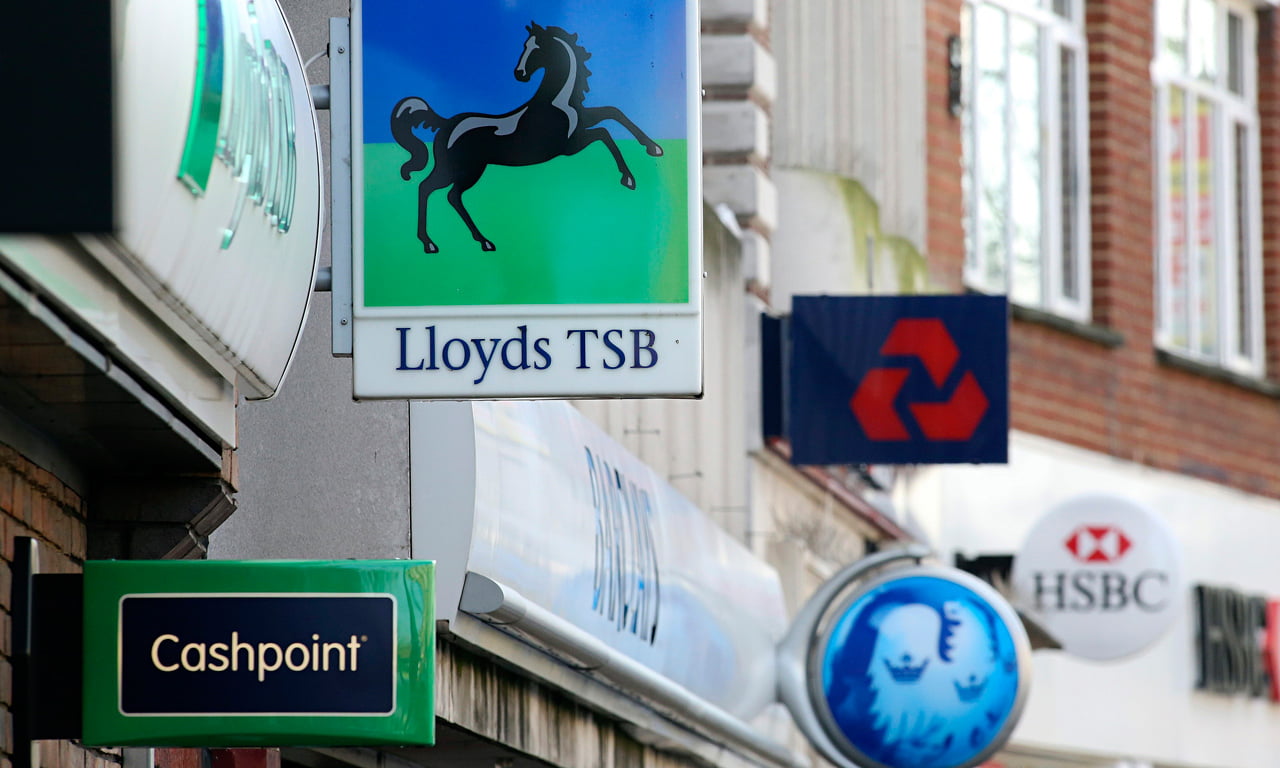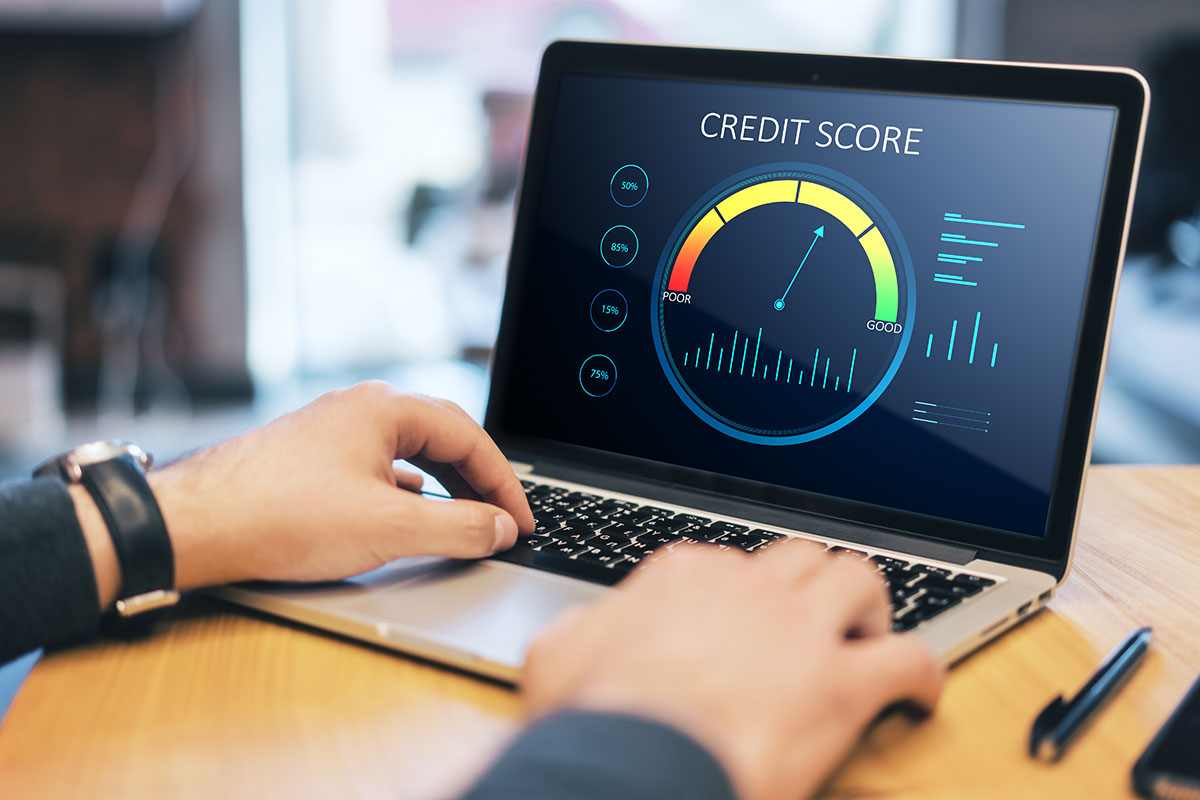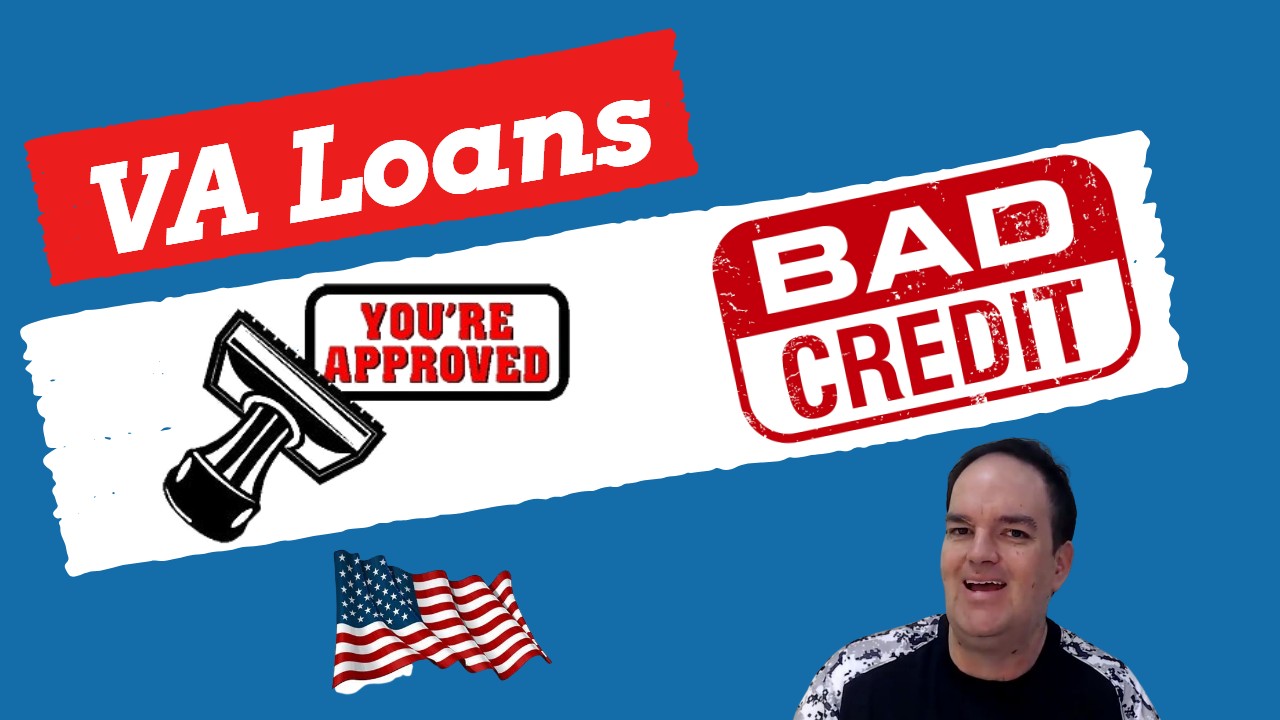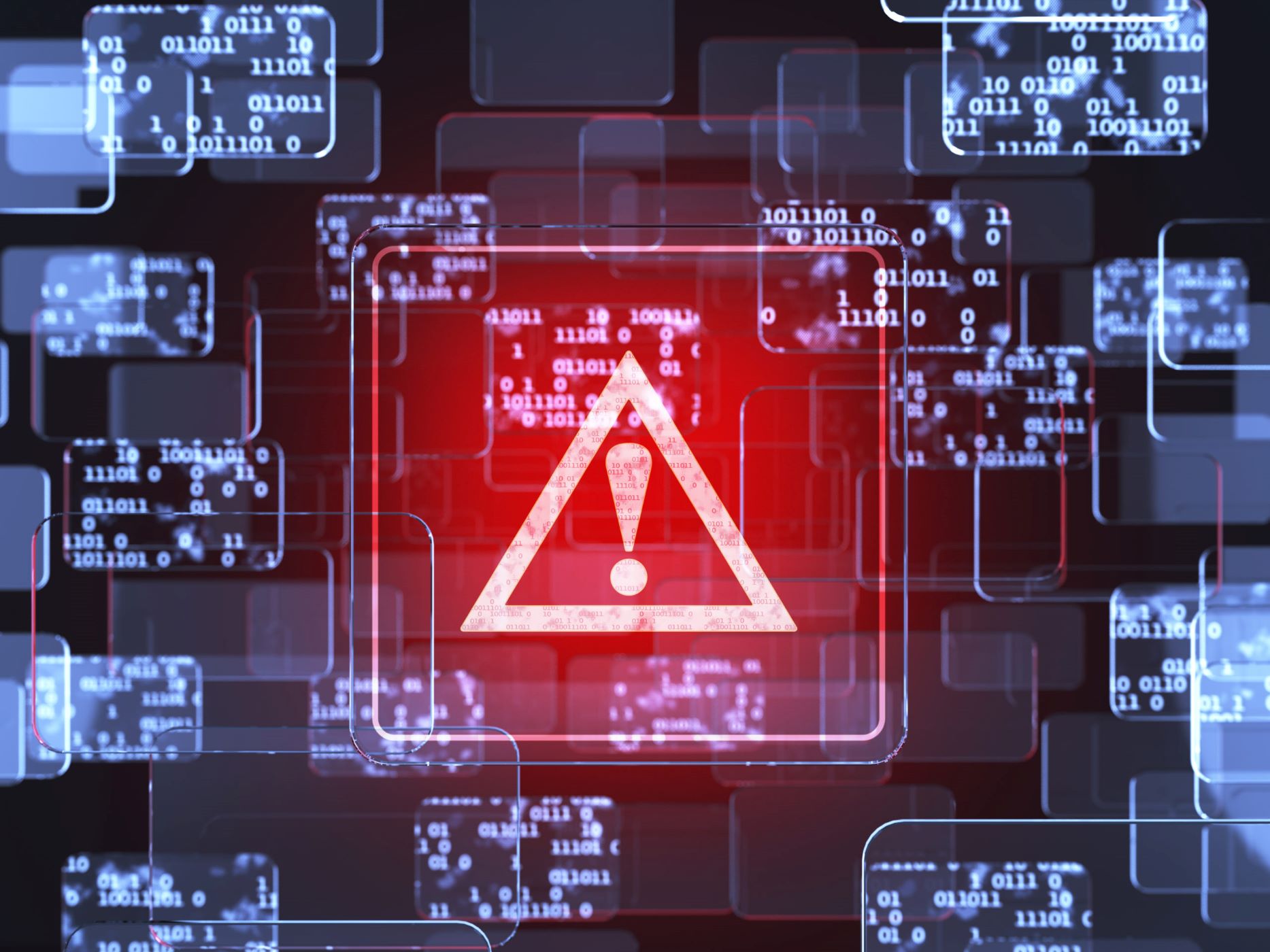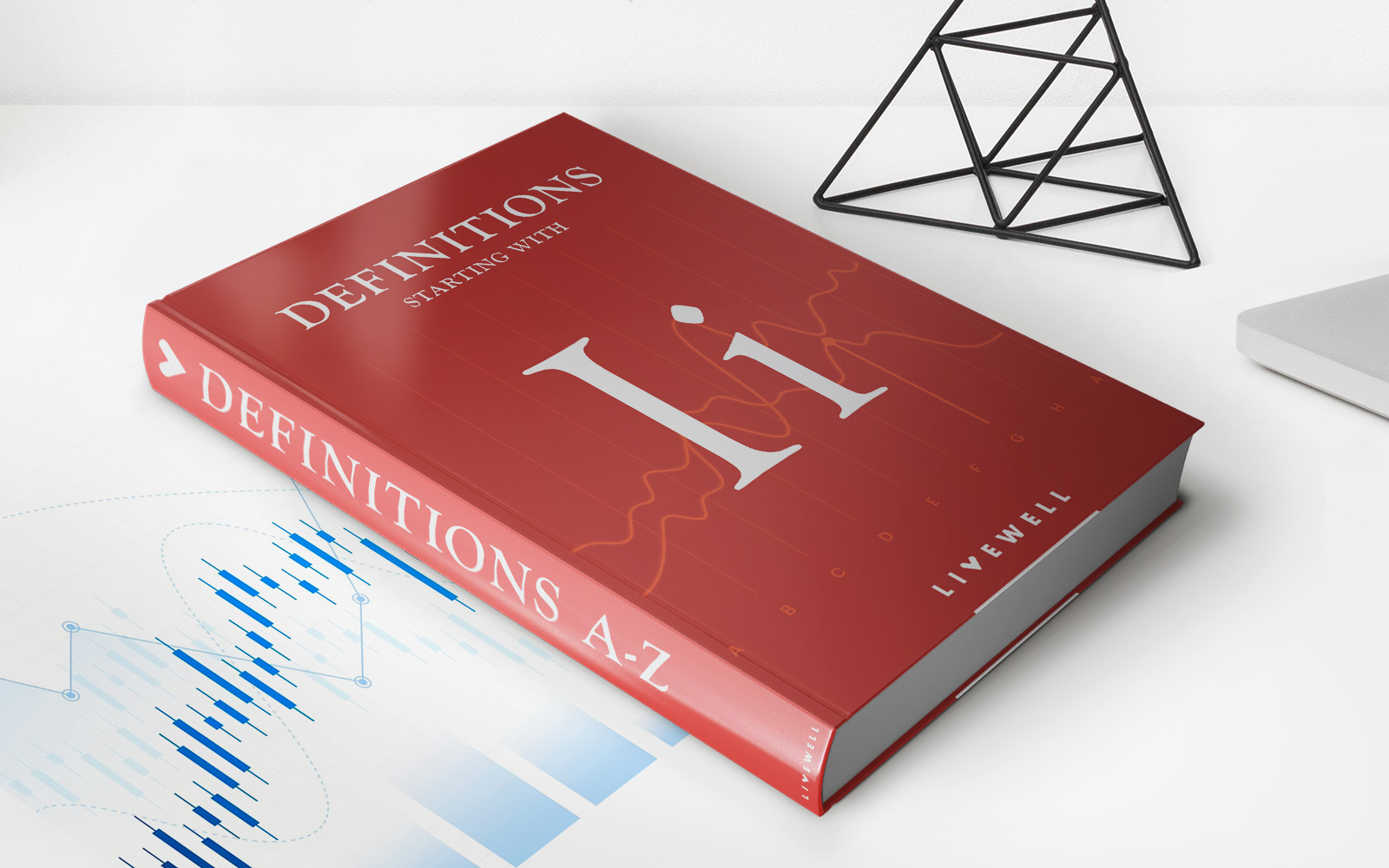

Finance
How To Get A Bank Account With Bad Credit
Modified: March 10, 2024
Learn how to open a bank account even if you have bad credit. Get your finances back on track and start building a better financial future.
(Many of the links in this article redirect to a specific reviewed product. Your purchase of these products through affiliate links helps to generate commission for LiveWell, at no extra cost. Learn more)
Table of Contents
- Introduction
- Understanding the Impact of Bad Credit on Opening a Bank Account
- Steps to Getting a Bank Account with Bad Credit
- Research Different Banks and Account Options
- Open a Basic Bank Account
- Provide Necessary Documentation
- Explore Second Chance Banking Programs
- Utilize Prepaid Debit Cards as an Alternative
- Consider Online Banks
- Improve Your Credit Score for Future Banking Needs
- Conclusion
Introduction
Opening a bank account is a fundamental step towards achieving financial stability and independence. It allows us to safely store our money, manage transactions, and access a range of banking services. However, for individuals with bad credit, the process of obtaining a bank account can be challenging. Having a low credit score can make traditional banks hesitant to extend their services, as they perceive higher risk in granting financial privileges to individuals with a history of credit problems.
In this article, we will explore strategies for getting a bank account with bad credit. While it may require a bit of effort and research, it is entirely possible to find a financial institution that will work with you. Whether you are looking for a basic bank account, a second chance banking program, or alternative banking options, we will provide you with valuable insights to help you make informed decisions. Additionally, we will discuss steps you can take to improve your credit score in order to secure more favorable banking terms in the future.
It is important to note that having a bank account is not only beneficial for financial transactions, but it also contributes to your overall financial well-being. With a bank account, you can establish a savings plan, build credit history, and access various banking services such as loans and credit cards. Therefore, it is crucial to navigate through the challenges of bad credit in order to open a bank account and take control of your financial future.
Understanding the Impact of Bad Credit on Opening a Bank Account
When you have bad credit, it can significantly impact your ability to open a bank account. Banks and financial institutions rely on your credit score to determine your level of financial responsibility and assess the risk of providing you with banking services. A low credit score indicates a higher risk, which can make traditional banks hesitant to approve your application for a bank account.
Having bad credit may result from a variety of factors, such as missed payments, high credit card balances, or even bankruptcy. Whatever the reason, it is important to understand how it affects your ability to open a bank account.
Firstly, traditional banks may deny your application for a standard checking or savings account if your credit score falls below their requirements. Banks are concerned that individuals with bad credit may be unable to manage their finances, leading to potential overdrafts or unpaid fees. This cautious approach is aimed at mitigating their risk and protecting their resources.
Secondly, having bad credit can limit your access to additional financial services, such as loans, credit cards, and mortgages. Banks often decline these services for individuals with low credit scores as they are considered high-risk borrowers. Without a bank account, you may have to rely on alternative financial services that charge higher fees and offer limited benefits.
Lastly, bad credit may also result in potential damage to your relationship with banking institutions. If you have a history of unpaid fees, defaulted loans, or other financial issues, your account may be flagged and reported to the ChexSystems or other similar consumer reporting agencies. This can make it even more challenging to open a bank account in the future.
Understanding the impact of bad credit on opening a bank account is crucial for navigating the process effectively. However, it is important to remember that having bad credit does not mean that you are destined to be without a bank account. There are alternative options and strategies available that can help you overcome these challenges and gain access to the banking services you need.
Steps to Getting a Bank Account with Bad Credit
Although bad credit may present hurdles in opening a bank account, it is not an insurmountable obstacle. With proper research and persistence, you can find banking options that cater to individuals with less-than-perfect credit. Here are some steps to help you get a bank account with bad credit:
- Research Different Banks and Account Options: Start by researching banks that are known to be more lenient towards applicants with bad credit. Look for banks that offer basic bank accounts or second chance banking programs specially designed for individuals with blemished credit histories.
- Open a Basic Bank Account: Basic bank accounts are designed to provide essential banking services without requiring a credit check. These accounts typically do not offer overdraft or check-writing capabilities, but they can still provide you with the ability to deposit and withdraw funds, use a debit card, and manage your finances online.
- Provide Necessary Documentation: To open a bank account, you will need to provide certain documents such as proof of identity, proof of address, and Social Security number. Make sure you have all the required documents ready to streamline the account opening process.
- Explore Second Chance Banking Programs: Many banks offer second chance banking programs specifically designed for individuals with bad credit. These programs often come with certain requirements, such as completing financial education courses or maintaining a positive account balance. Research and compare different second chance banking options to find one that suits your needs.
- Utilize Prepaid Debit Cards as an Alternative: If traditional banks are not an option, consider using prepaid debit cards as an alternative. These cards are not linked to a bank account but can be used for making purchases and managing your finances. Look for prepaid debit cards that offer low fees and convenient features.
- Consider Online Banks: Online banks, also known as digital banks, might be more willing to work with individuals who have bad credit. These banks often have lower overhead costs and can provide more flexible banking options. Research reputable online banks and explore their account offerings.
- Improve Your Credit Score for Future Banking Needs: While you may be able to secure a bank account with bad credit, it is important to work on improving your credit score. Pay your bills on time, reduce your existing debts, and limit new credit applications. Over time, as your credit score improves, you will have access to a wider range of banking services.
Remember, the process of getting a bank account with bad credit may require some patience and persistence. Be proactive in exploring your options, and don’t be discouraged if you face rejections along the way. With determination and the right approach, you can find a bank account that suits your needs, even with bad credit.
Research Different Banks and Account Options
When it comes to getting a bank account with bad credit, conducting thorough research is essential. Start by exploring different banks and their account options, specifically looking for those that are more accommodating to individuals with less-than-perfect credit. Here are some key factors to consider in your research:
- Bank Reputation: Look for banks that have a reputation for being more flexible and understanding towards individuals with bad credit. Read customer reviews and testimonials to gauge their level of customer service and their willingness to work with individuals in similar situations.
- Basic Bank Accounts: Some banks offer basic bank accounts that are specifically designed for individuals with bad credit. These accounts often have minimal requirements and do not require a credit check. They may come with limitations, such as no overdraft or check-writing capabilities, but they can still provide you with essential banking services.
- Second Chance Banking Programs: Many banks have second chance banking programs that cater to individuals with bad credit. These programs offer a fresh start and the opportunity to rebuild your financial reputation. Compare the requirements and benefits of different second chance banking options to find the one that aligns with your needs and financial goals.
- Account Fees and Features: Pay attention to the fees associated with opening and maintaining a bank account. Look for accounts with low or no monthly maintenance fees, low balance requirements, and free or low-cost debit card usage. Consider the features that are important to you, such as online banking, mobile banking, and ATM access.
- Customer Support: Evaluate the customer support services offered by different banks. Having access to helpful and responsive customer support can make a significant difference, especially when dealing with any issues or concerns related to your bank account.
- Community Banks and Credit Unions: Consider community banks and credit unions as they may have more lenient policies for individuals with bad credit. These institutions often prioritize building relationships with their members and may be more willing to work with you to find a suitable banking solution.
Take the time to compare the different options available to you. Look beyond the big national banks and explore local or regional banks that may be more flexible and accommodating. Don’t be afraid to reach out to their customer service representatives to ask specific questions about their policies and eligibility requirements.
Remember, the goal is to find a bank that is willing to give you the opportunity to manage your finances responsibly and rebuild your financial profile. By conducting thorough research, you can increase your chances of finding a bank that will work with you, even with bad credit.
Open a Basic Bank Account
If you have bad credit, one viable option for getting a bank account is to open a basic bank account. These accounts are designed to provide essential banking services without the need for a credit check. While they may have certain limitations, they can still fulfill your primary banking needs. Here’s what you need to know about opening a basic bank account:
What is a Basic Bank Account?
A basic bank account is a simplified banking option that is available to individuals with bad credit or no credit history. These accounts provide basic features such as depositing and withdrawing funds, accessing online banking, and using a debit card for purchases. However, they typically do not offer features like overdraft protection or check-writing capabilities.
Advantages of a Basic Bank Account:
- No Credit Check: The main advantage of a basic bank account is that there is no credit check involved. This makes it easier for individuals with bad credit to open an account and gain access to basic banking services.
- Building a Banking Relationship: Opening a basic bank account allows you to establish a relationship with the bank. Over time, as you demonstrate responsible banking behavior, it can help improve your reputation with the bank and potentially open doors to additional banking services.
- Financial Management: A basic bank account provides you with a safe and secure place to deposit your money, make transactions, and manage your day-to-day finances. It allows you to stay organized and have better control over your financial activities.
Things to Consider:
- Fees: While basic bank accounts generally have lower fees compared to traditional accounts, you should still be aware of any associated fees. Make sure to review the fee structure, including monthly maintenance fees, ATM withdrawal fees, and overdraft fees, if applicable.
- Transaction Limits: Basic bank accounts may have transaction limits, such as a cap on the number of free withdrawals or a limit on the amount you can deposit or withdraw in a day. Make sure to understand these limits and ensure they align with your banking needs.
- Electronic Banking: Basic bank accounts often provide online and mobile banking services, which can be convenient for managing your money. Take advantage of these features to monitor your account, transfer funds, and set up automatic payments.
When opening a basic bank account, carefully review the terms and conditions of the account to ensure that it meets your specific needs. Choose a bank that offers the features and services that are important to you, while also considering their reputation and customer service. Remember, opening a basic bank account is a stepping stone towards rebuilding your financial profile and gaining access to more comprehensive banking services in the future.
Provide Necessary Documentation
When opening a bank account, regardless of your credit history, you will need to provide certain documentation to prove your identity and meet regulatory requirements. Here are the necessary documents you will typically need to provide:
Proof of Identity:
One of the primary documents you will need to provide is a valid form of identification. This can be a government-issued ID such as a driver’s license, passport, or state identification card. Make sure that the identification document you provide is current and not expired.
Proof of Address:
Banks typically require proof of address to verify your residential information. This can be in the form of a utility bill, bank statement, or rental agreement that shows your name and current address. Make sure the document is recent and displays the necessary details required by the bank.
Social Security Number:
You will also need to provide your Social Security number (SSN) when opening a bank account. This is required for identification and to comply with anti-money laundering regulations. Make sure to have your SSN card or a copy of it available.
Additional Documents:
Depending on the bank and the type of account you are opening, you may be required to provide additional documentation. This could include proof of employment or income, such as pay stubs or tax returns, especially if you are opening a checking account with overdraft protection or applying for a loan or credit card. It’s important to check with the bank beforehand to ensure you have all the necessary documents.
Keep in mind that banks have varying requirements and may request additional documents for identity verification or to meet their internal policies. It’s always a good idea to contact the bank in advance or visit their website to get a comprehensive list of the documents they require.
When submitting your documents, it’s crucial to provide valid and unaltered information. Banks have strict compliance regulations to prevent fraud and money laundering, so any inconsistencies or falsification of documents can result in your application being declined or even legal consequences.
By having your necessary documentation prepared and ready, you can streamline the account opening process and improve your chances of getting a bank account, even with bad credit.
Explore Second Chance Banking Programs
If you have bad credit and traditional banks have denied your application for a regular bank account, don’t lose hope. Many financial institutions offer second chance banking programs specifically designed to give individuals with poor credit another opportunity to access banking services. Here’s what you need to know about exploring second chance banking programs:
What are Second Chance Banking Programs?
Second chance banking programs are tailored for individuals with bad credit or a troubled banking history. These programs provide an alternative banking option, allowing you to open an account despite your credit challenges. They offer a fresh start and the opportunity to rebuild your financial reputation.
Benefits of Second Chance Banking Programs:
- Account Approval: One of the main benefits of second chance banking programs is that they are more lenient in their account approval process. Even if you have a history of banking issues or an unfavorable credit score, these programs are designed to give you a fair chance to establish a banking relationship.
- Basic Banking Services: Second chance banking programs generally provide essential banking services such as online banking, debit cards, and direct deposit. While the specific features may vary, you can still enjoy convenient access to your funds and manage your finances effectively.
- Financial Education: Some second chance banking programs offer financial education resources and tools to help you improve your financial literacy and make informed decisions. These resources can help you develop better money management habits and work towards improving your credit score.
What to Consider:
- Account Fees: It’s important to carefully review the fees associated with these programs. While they may have slightly higher fees compared to traditional bank accounts, make sure they are reasonable and fit within your budget.
- Requirements: Some second chance banking programs may have specific eligibility requirements or limitations. For example, they may require a minimum initial deposit or have restrictions on check-writing capabilities. Review the program’s terms and conditions to ensure they align with your needs.
- Rebuilding Your Reputation: Opening a second chance bank account is an opportunity to demonstrate responsible financial behavior and rebuild your reputation. Make sure to manage your account responsibly, avoid overdrafts, and pay your fees and bills on time. Over time, this can lead to improved banking relationships and potentially open doors to more favorable banking options.
When exploring second chance banking programs, research different financial institutions that offer these programs and compare their offerings. Pay attention to customer reviews, account features, and the institution’s overall reputation. Choose a program that aligns with your financial needs and supports your efforts to improve your creditworthiness.
Remember, second chance banking programs can be stepping stones to better financial stability. By utilizing these programs effectively and responsibly, you can work towards rebuilding your credit and gaining access to more comprehensive banking services in the future.
Utilize Prepaid Debit Cards as an Alternative
If traditional bank accounts are not a viable option for you due to bad credit, another alternative to consider is utilizing prepaid debit cards. These cards can provide you with many of the benefits of a traditional bank account, without the need for a credit check or a bank approval process. Here’s what you need to know about utilizing prepaid debit cards:
What are Prepaid Debit Cards?
Prepaid debit cards are payment cards that are loaded with funds in advance. They work similarly to traditional debit cards, allowing you to make purchases, withdraw cash from ATMs, and manage your money. However, unlike traditional debit cards, prepaid cards are not directly linked to a bank account.
Advantages of Prepaid Debit Cards:
- No Credit Check or Bank Approval: Prepaid debit cards do not require a credit check or approval from a bank. This makes them an accessible option for individuals with bad credit or those who are unbanked.
- Convenience and Security: Prepaid debit cards offer the convenience of electronic payments and can be used anywhere that accepts debit cards. They are also a safer alternative to carrying cash, as they can be easily replaced if lost or stolen.
- Budgeting and Control: Prepaid debit cards allow you to control your spending by loading only the desired amount onto the card. This can be useful for budgeting and avoiding overspending.
- Online and Mobile Banking: Many prepaid debit cards come with online and mobile banking features that allow you to manage your card, check your balance, and view transaction history.
Things to Consider:
- Fees: Prepaid debit cards may come with various fees, such as activation fees, monthly maintenance fees, ATM withdrawal fees, and transaction fees. Before choosing a card, carefully review the fee structure and compare different options to find one that offers reasonable fees for your usage pattern.
- Reload Options: Consider the options available for reloading funds onto the card. Some cards allow direct deposit, mobile check deposits, or in-store cash deposits, while others may only offer limited reloading options. Choose a card that suits your convenience and reloading needs.
- Features and Limitations: Different prepaid debit cards may have different features and limitations. Some may allow you to set up recurring payments or use the card for online shopping, while others may have restrictions in these areas. Evaluate the features that are important to you and make sure the card meets your specific requirements.
Prepaid debit cards can serve as a practical and convenient alternative to traditional bank accounts if your options are limited due to bad credit. However, it’s important to carefully review the terms and conditions of the card, including associated fees, to ensure it fits your financial needs and goals.
Keep in mind that while prepaid debit cards can provide you with banking-like features and convenience, they do not contribute to building credit. If improving your credit score is a priority, it’s essential to explore other strategies for managing and rebuilding your credit history.
Consider Online Banks
If you have bad credit and are looking for alternative banking options, considering online banks can be a smart move. Online banks, also known as digital banks, offer a range of financial services and can be more willing to work with individuals who have a less-than-perfect credit history. Here’s what you need to know about considering online banks:
What are Online Banks?
Online banks operate exclusively through online platforms, without the overhead costs associated with physical branches. These banks offer many of the same services as traditional banks, such as checking and savings accounts, debit cards, and online banking. However, they often provide more flexibility in their account requirements and are more open to serving individuals with bad credit.
Advantages of Online Banks:
- Easy Accessibility: Online banks allow you to manage your finances from the comfort of your home, using a computer or a mobile device. This accessibility makes it convenient for individuals with limited mobility or those in remote areas to access banking services.
- Lower Fees: Online banks often have lower fees compared to traditional brick-and-mortar banks. With fewer overhead costs, they can pass on the savings to their customers in the form of reduced fees or even no-fee banking options.
- Wider ATM Network: While online banks don’t have physical branches, many of them have partnerships with ATM networks, allowing you to withdraw cash fee-free from a large number of ATMs.
- Flexible Account Requirements: Online banks generally have more flexible account requirements and may be open to working with individuals who have bad credit. They often prioritize technology-driven solutions and may have streamlined processes for account opening.
Points to Consider:
- Research and Compare: With a growing number of online banks available, it’s important to thoroughly research and compare their offerings. Look for reputable banks with positive customer reviews and make sure they provide the services, features, and account options that align with your financial needs.
- Customer Support: Evaluate the customer support services offered by online banks. While their digital platforms are convenient, it’s still important to have access to responsive and helpful customer support in case you have any questions or issues with your account.
- Security: Online banks prioritize security measures to protect your financial information. Look for banks that employ encryption technology, multi-factor authentication, and fraud detection systems to ensure your transactions and data are secure.
- FDIC Insurance: Ensure that the online bank you choose is a member of the Federal Deposit Insurance Corporation (FDIC). This guarantees that your deposits, up to $250,000 per depositor, are insured in case the bank fails.
Considering online banks can provide you with a convenient and accessible banking solution, especially if traditional banks have rejected your application due to bad credit. With their emphasis on technology and flexibility, online banks can offer a variety of account options and services that cater to your specific needs.
Remember to carefully review the terms and conditions, fees, and account features of any online bank you consider. By doing your due diligence, you can find the online bank that best suits your financial goals and helps you overcome the challenges of bad credit.
Improve Your Credit Score for Future Banking Needs
If you have bad credit and are facing difficulties in obtaining a bank account, it’s important to work on improving your credit score for future banking needs. While it may take time and effort, improving your credit can open up more opportunities for favorable banking terms and services. Here are some steps to help you improve your credit score:
1. Review Your Credit Report: Begin by obtaining a copy of your credit report from major credit bureaus. Carefully review the report to identify any errors, discrepancies, or fraudulent activity. Dispute any inaccuracies and work to resolve any outstanding issues affecting your credit.
2. Pay Bills on Time: Payment history is a significant factor in determining your credit score. Make it a priority to pay all your bills and debts on time. Consider setting up automatic payments or reminders to ensure you never miss a payment.
3. Reduce Debt and Utilization: High levels of debt, particularly credit card debt, can negatively impact your credit score. Develop a plan to reduce your debt by making regular payments and focusing on paying off higher interest debts first. Aim to keep your credit utilization ratio below 30% by utilizing less of your available credit.
4. Build a Positive Credit History: If you don’t have a credit history or have limited credit, consider opening a secured credit card or becoming an authorized user on someone else’s credit card. Use credit responsibly by making small purchases and paying off the balance in full each month.
5. Avoid Applying for Excessive Credit: Each time you apply for new credit, it can result in a hard inquiry on your credit report, which can temporarily lower your score. Be selective about applying for new credit and only do so when necessary.
6. Avoid Closing Old Accounts: Closing old credit accounts can negatively impact your credit history and credit utilization ratio. Keep your old accounts open, even if you aren’t actively using them, to maintain a longer credit history.
7. Seek Professional Advice: Consider consulting a reputable credit counseling agency or a financial advisor who can provide personalized guidance on improving your credit score. They can help you establish a plan and provide strategies to rebuild your credit effectively.
Remember, improving your credit score takes time and consistent effort. It’s crucial to be patient and persistent in your actions. As your credit score improves, you’ll have greater opportunities to access more favorable banking options, including higher credit limits, lower interest rates, and better account terms.
By focusing on improving your credit score, you can not only open doors to better banking services but also lay a foundation for improved financial well-being in the long run.
Conclusion
Having bad credit does not mean that you have to be without a bank account. Despite the challenges, there are options available to help you gain access to banking services and take control of your finances.
In this article, we explored steps to get a bank account with bad credit. We discussed the importance of researching different banks and account options, opening a basic bank account, providing necessary documentation, exploring second chance banking programs, utilizing prepaid debit cards as an alternative, considering online banks, and working on improving your credit score for future banking needs.
It’s important to remember that opening a bank account with bad credit may require patience, persistence, and flexibility. Each individual’s financial situation is unique, so it’s crucial to explore different options and choose the one that suits your needs and goals.
While navigating the challenges of bad credit, it’s also essential to work towards improving your credit score. This can open up more banking opportunities and better financial terms in the future.
Finally, it’s worth mentioning that seeking professional financial advice or credit counseling can provide invaluable guidance specific to your situation. They can help you navigate the complexities of rebuilding credit and managing your finances effectively.
Remember, your journey towards financial stability begins with taking the initiative to explore your banking options, understanding your financial situation, and making a commitment to improve your credit. With determination and the right approach, you can overcome the challenges of bad credit and regain control of your financial future.



